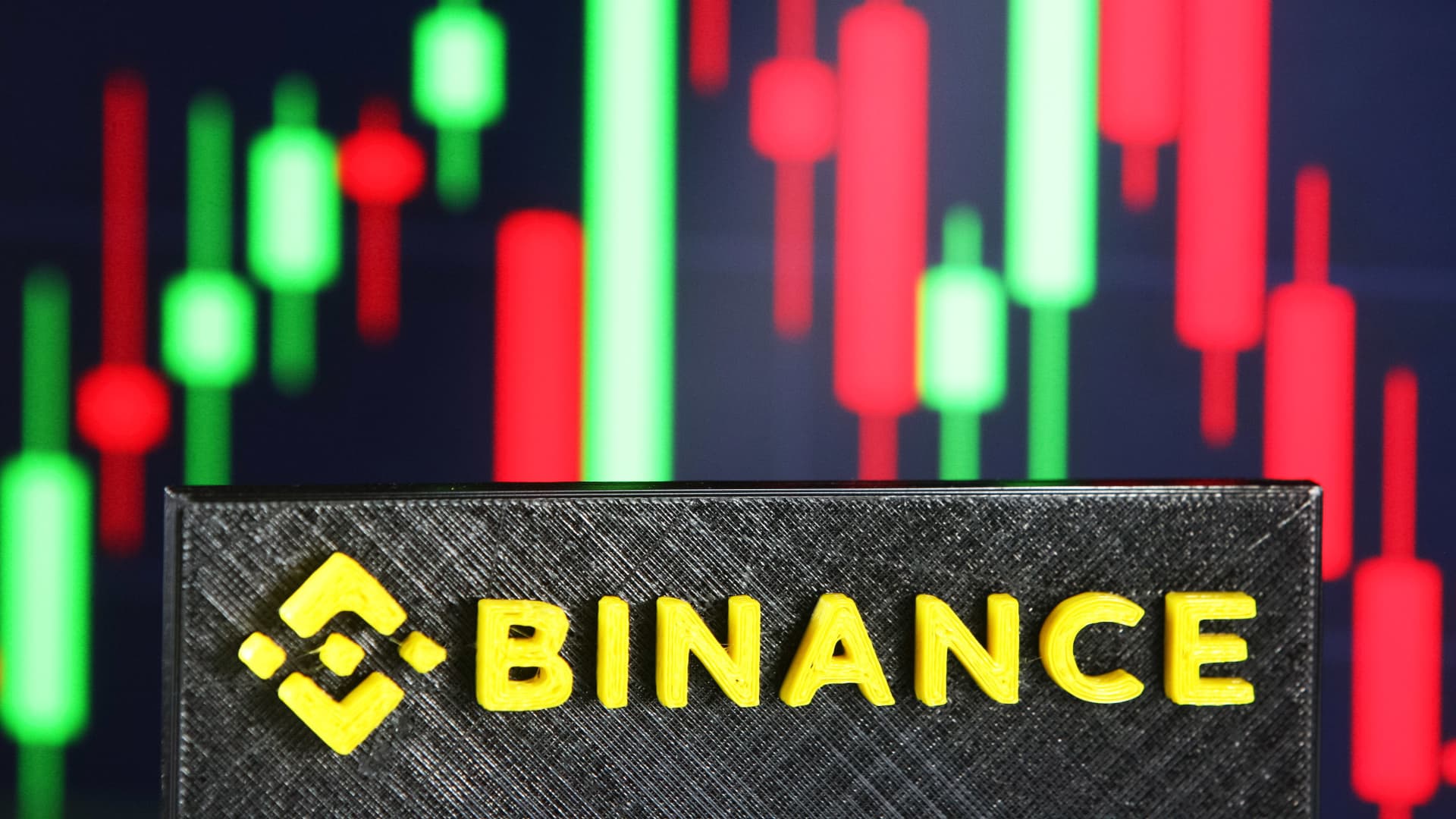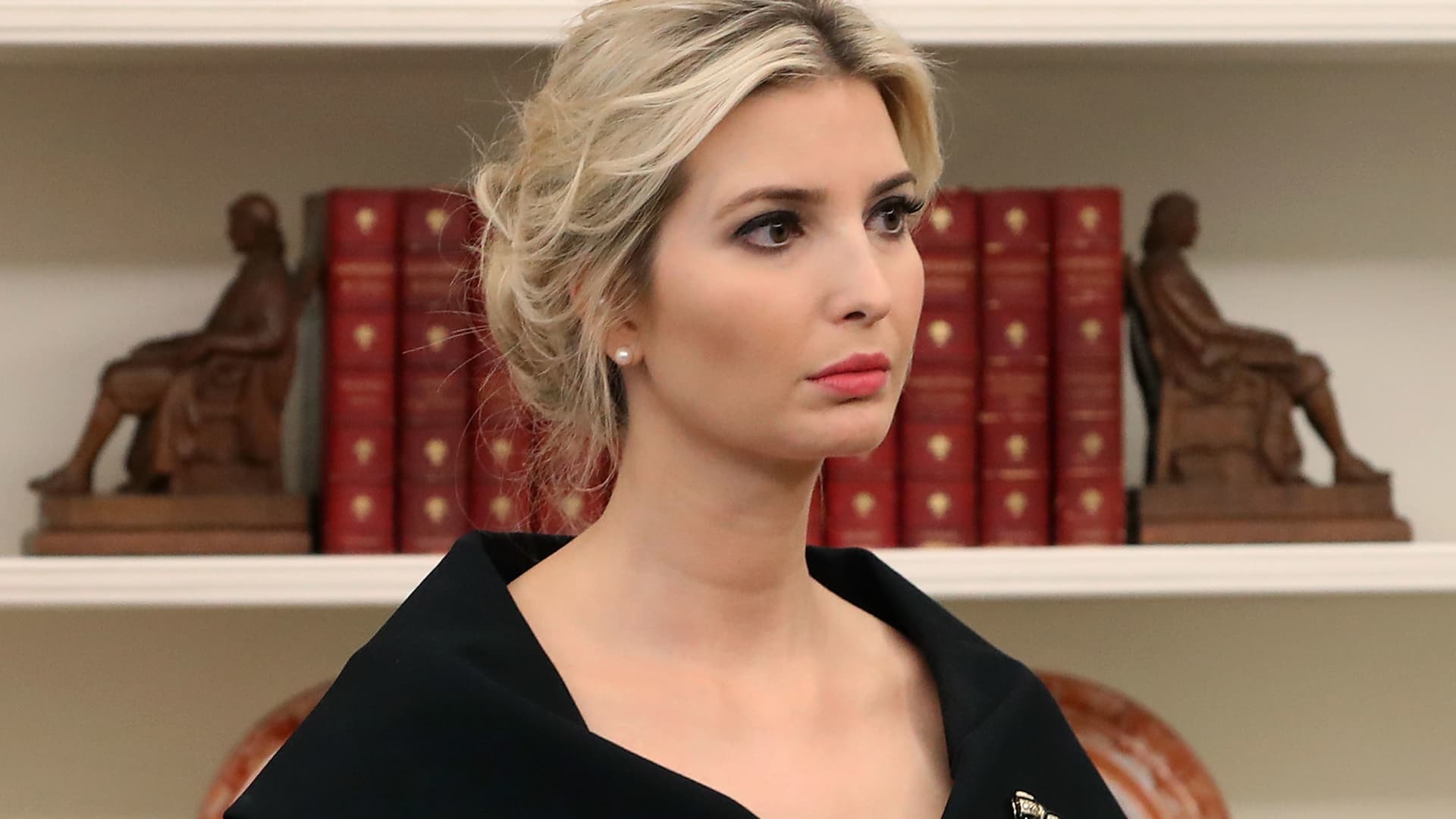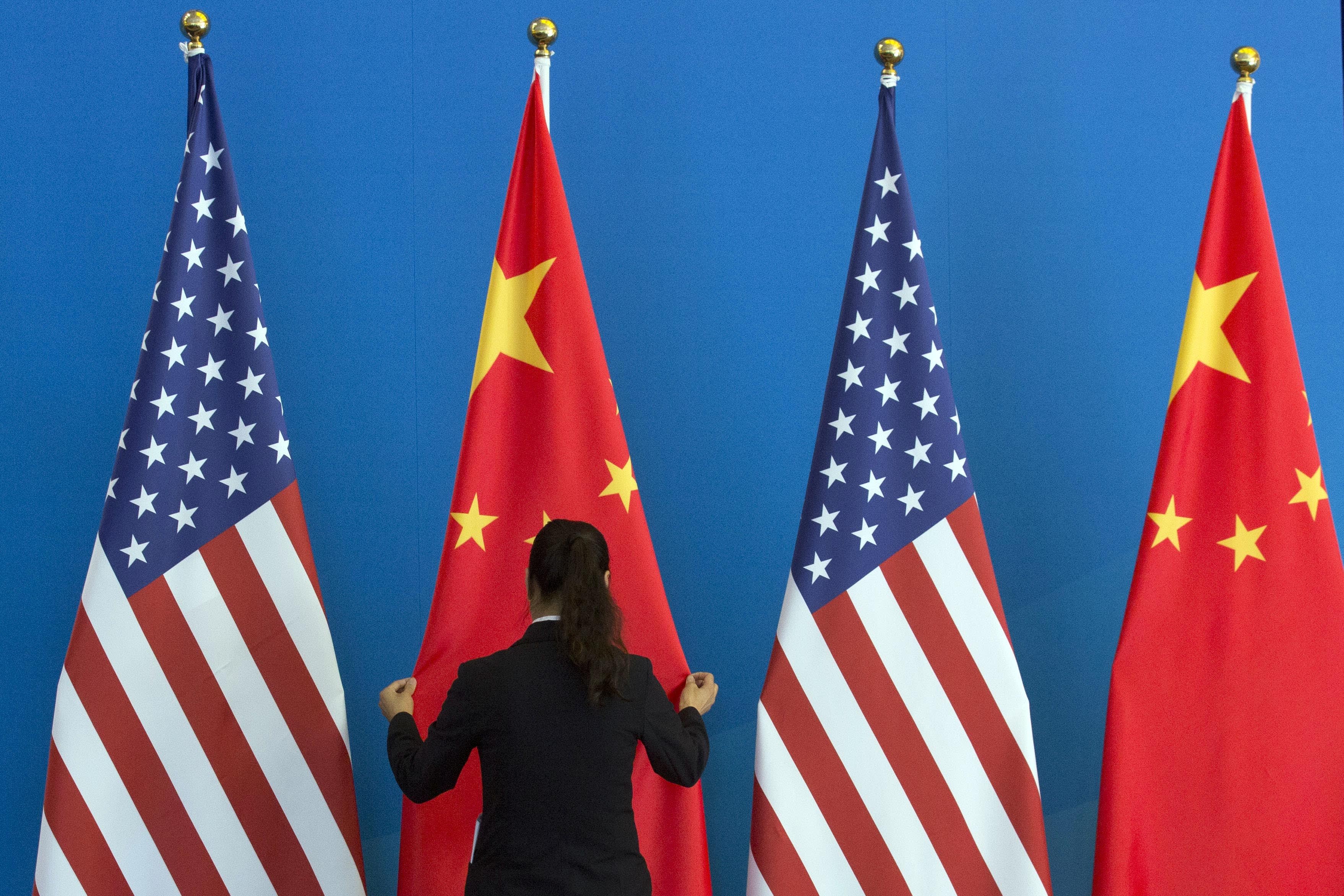Binance is backing Elon Musk's Twitter bid, boosting crypto believers' vision of a 'decentralized' web
Changpeng Zhao, Binance's CEO, is a big believer in the crypto world's vision of a new kind of internet, known as "Web3."

Binance is the world's largest crypto exchange, handling billions of dollars in trading volumes on a daily basis.
STR | NurPhoto via Getty Images
Bitcoin exchange Binance's move to participate in Elon Musk's $44 billion takeover of Twitter could boost digital currency evangelists' hopes for the development of a more "decentralized," crypto-friendly social media platform.
Binance plans to invest $500 million in equity funding as part of a $7 billion financing pledge to support the Tesla CEO's bid to buy Twitter. Oracle co-founder Larry Ellison and venture capital firm Sequoia are among the other investors involved.
Binance's participation is curious, not least because of the business it operates. The company is the world's largest crypto exchange, handling more than $70 billion in spot and derivative trading volumes on a daily basis, according to CoinGecko data.
Changpeng Zhao, Binance's billionaire CEO and founder, is a big believer in the crypto world's vision of a new kind of internet, known as "Web3." It's an ill-defined term, but Web3 as a concept loosely refers to new web experiences built around blockchain, the technology that underpins many cryptocurrencies.
Such services could incorporate digital tokens like NFTs — the crypto equivalent of collectible items like rare art or trading cards — into things like social media, web browsers or video games.
Binance's stake in Twitter could be Zhao's chance to realize Web3's decentralized ideals.
"We're excited to be able to help Elon realize a new vision for Twitter," Zhao told CNBC Thursday. "We hope to be able to play a role in bringing social media and web3 together and broadening the use and adoption of crypto and blockchain technology."
Musk, a self-proclaimed "free speech absolutist," has frequently bemoaned what he views as censorship by Twitter of conservative-leaning voices on the platform.
Bitcoin and other digital currencies aren't controlled by any single entity, a setup that proponents say makes them "censorship-resistant."
Before he stepped down as CEO, Twitter co-founder Jack Dorsey helped establish an initiative aimed at creating decentralized social media protocols. Called Bluesky, the project was formed in part to address the issue of a handful of powerful tech companies controlling the most popular online services.
Though backed by Twitter, Bluesky says it is an "independent company." Dorsey, who has publicly backed Musk's bid and is a vocal supporter of bitcoin, remains on Bluesky's board.
"In principle, I don't believe anyone should own or run Twitter," Dorsey said in a recent tweet. "It wants to be a public good at a protocol level, not a company."
Though backed by Twitter, Bluesky is an "independent company" and its funding from the tech giant is "not subject to any conditions except one: that Bluesky is to research and develop technologies that enable open and decentralized public conversation," the project said.
While it's still unclear what exactly Musk has planned for Twitter, he has already hinted at plans to make the site more crypto-friendly, including accepting meme-inspired token dogecoin as a method of payment.
"I think that bodes really well for how Twitter as a private organization may be able to be even more nimble and more agile in terms of servicing these growing ecosystems, be it crypto or other new technologies," Michael Sonnenshein, CEO of crypto asset manager Grayscale, told CNBC in a recent interview.
But Musk's commitment to relax policies on what Twitter users can post has fueled concerns that he may open the platform up to potentially toxic or illegal content. For his part, Musk says he only wants to allow speech "which matches the law."
"I am against censorship that goes far beyond the law," he said in a tweet last week.
Ryan Wyatt, head of blockchain group Polygon's gaming and metaverse division, said balancing freedom of expression with maintaining a safe environment online is "much easier said than done."
"It's very easy to point and say, that shouldn't be on, that shouldn't be on," Wyatt, who was previously head of gaming at YouTube, told CNBC. "But if I asked 100 different people, you'd get 100 different responses."
"How you make those decisions in a way that might go against your personal values but also upholds free speech — these are very difficult, complicated conversations to have and I don't envy the wealthiest man in the world trying to take that off."

 Tfoso
Tfoso 































